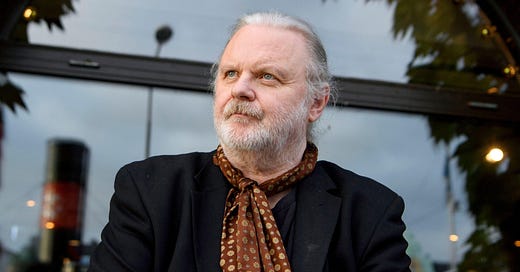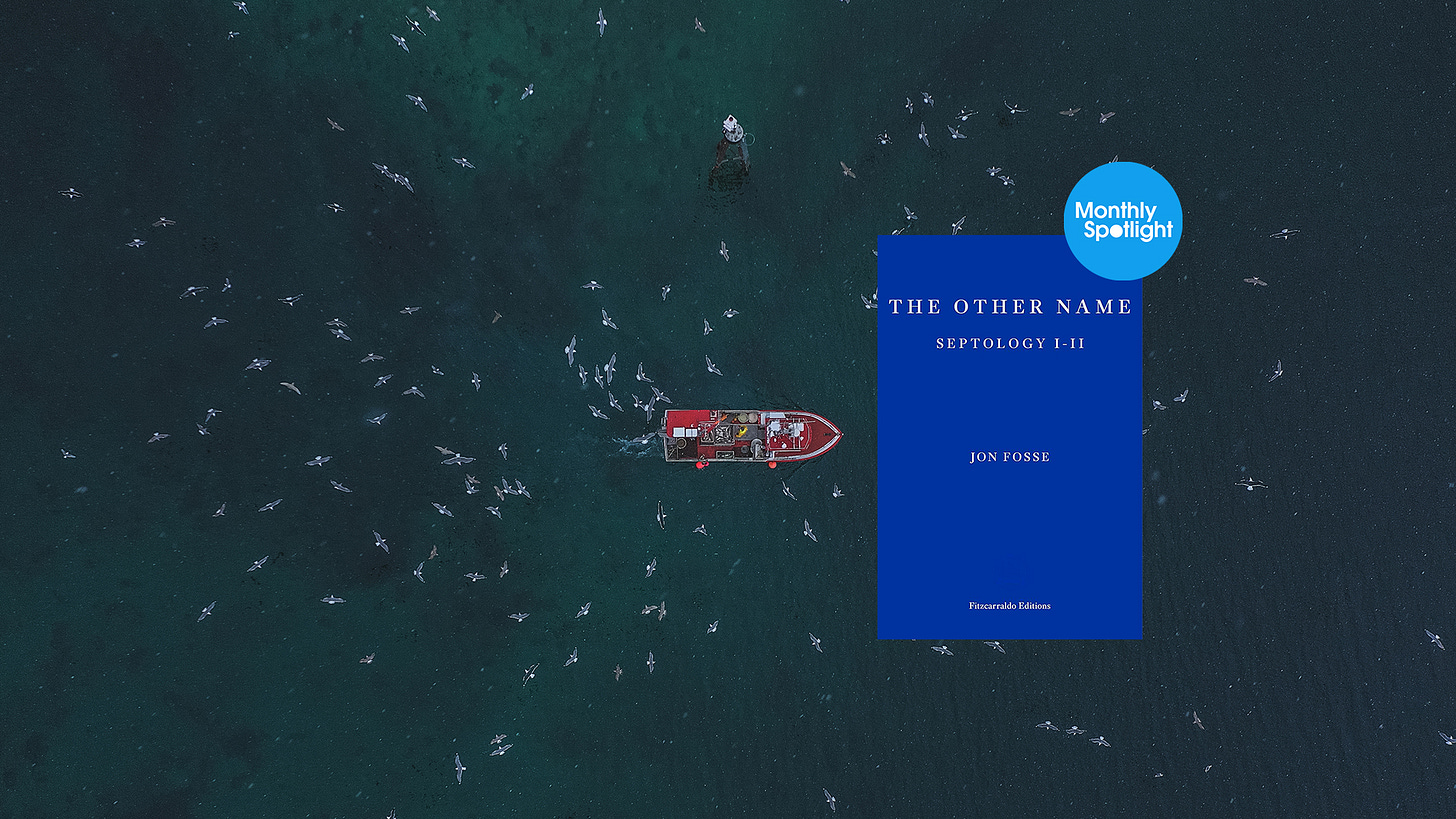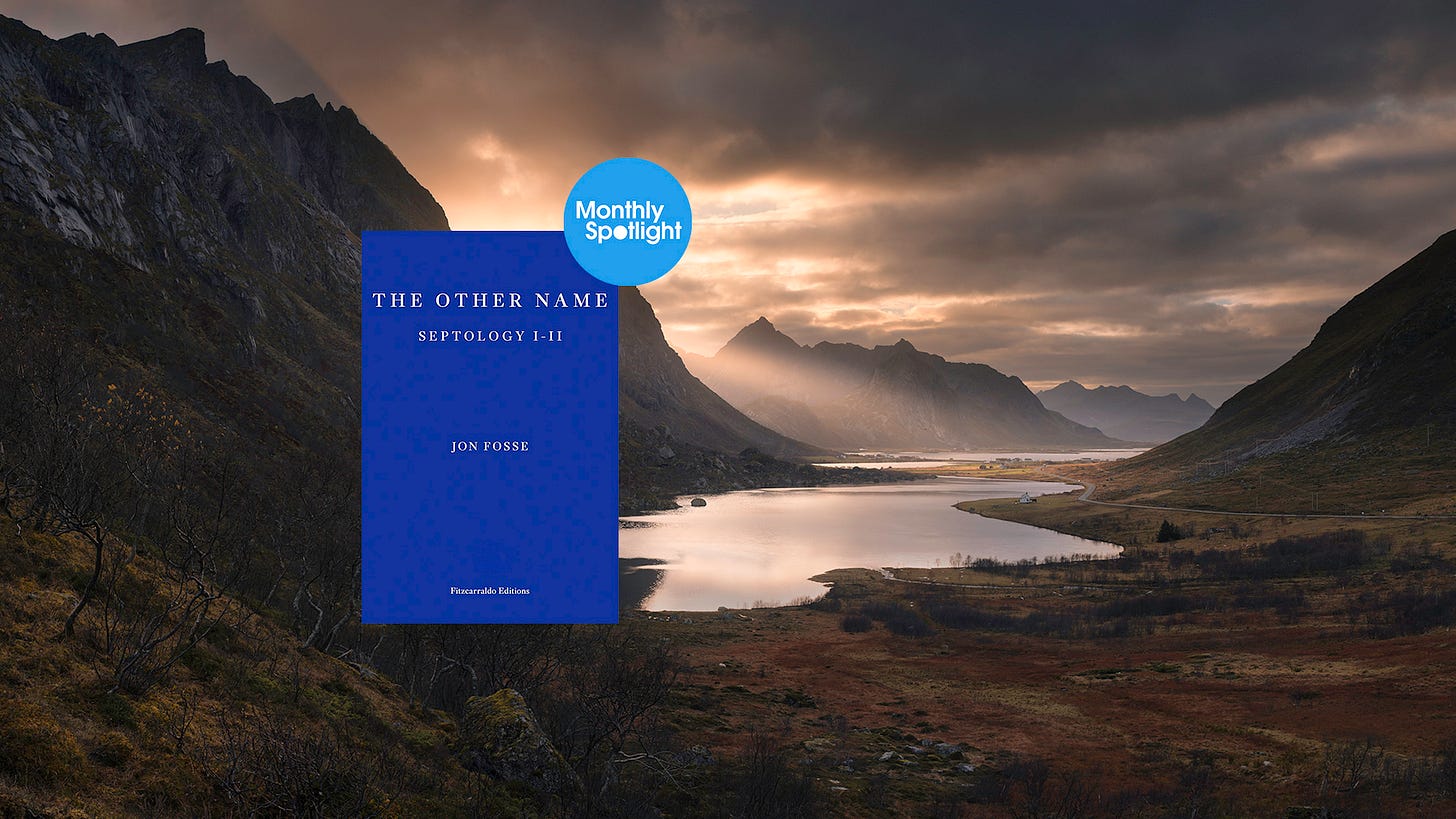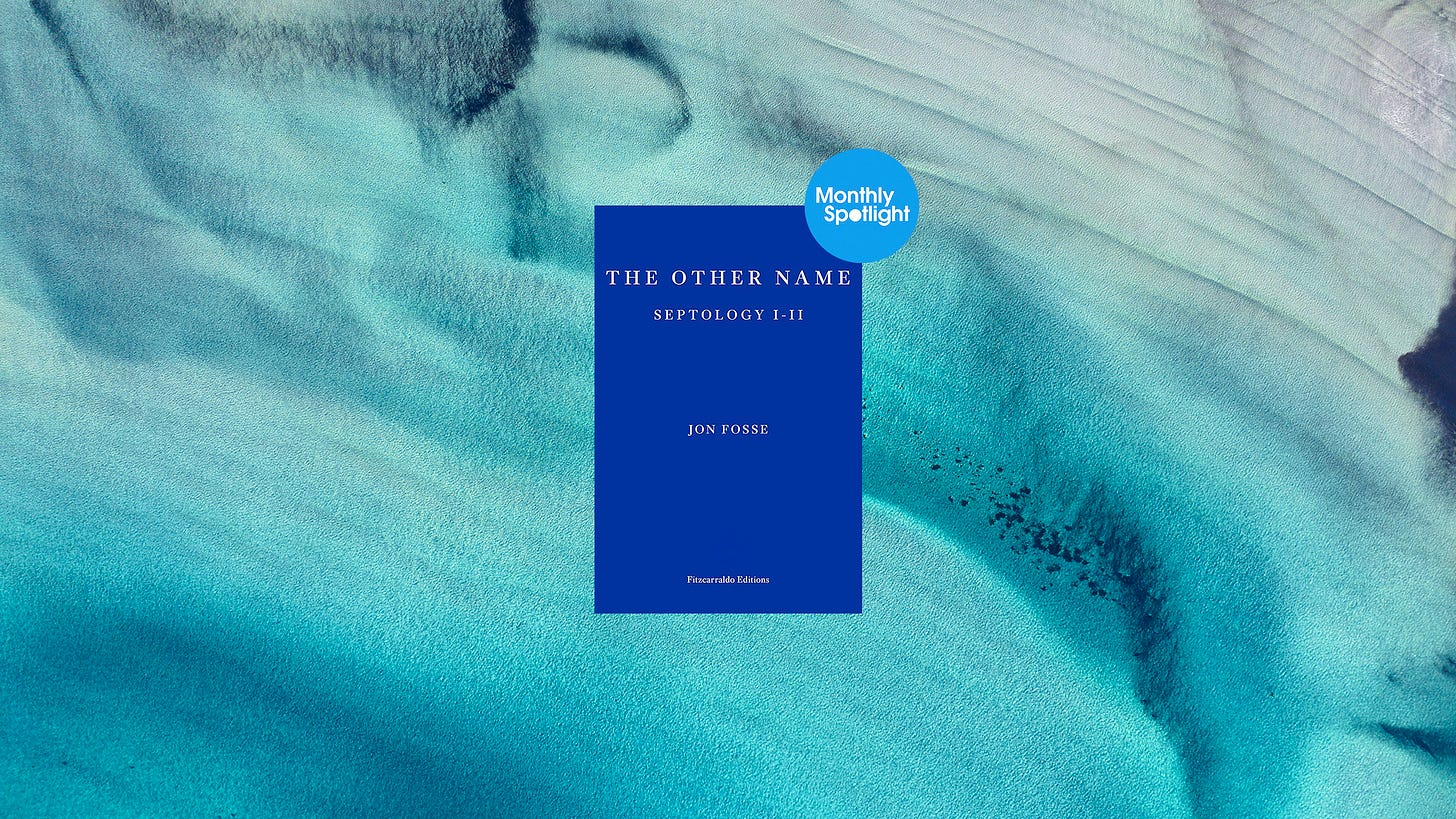Discover our Monthly Spotlight for September: Jon Fosse's The Other Name
This month, we revisit the first book in the Norwegian author's Septology sequence. Read an interview and extract, explore our reading guide and enter our latest competition
This September, as the seasons begin to turn, we’d love you to join us in reading (or re-reading) The Other Name: Septology I-II by Jon Fosse, translated into English by Damion Searls.
The novel, which was longlisted for the International Booker Prize in 2020, marks the beginning of an epic seven-part sequence which offers a profound exploration of the human condition. It is Fosse’s magnum opus.
For almost 40 years, Fosse has written a wealth of novels, plays, poems, stories, essays, and children’s books, with his work translated into more than fifty languages, and plays staged over a thousand times all over the world. In 2023, he was awarded the Nobel Prize in Literature ‘for his innovative plays and prose which give voice to the unsayable’.
Fosse’s writing is characterised by his signature slow and hypnotic prose, seamlessly shifting between first and third person. In an exclusive interview with the Booker Prizes website this month, Fosse shared his earliest influences on this style. ‘I started out writing in my early teens, and at that time I was playing the guitar a lot,’ he said. ‘When I stopped playing and started writing, I tried to recreate the mood or atmosphere of music.’ This led him to explore ‘the musical side of language, especially writing in a certain rhythm’.
For more insights into Fosse’s creative process, his inspirations and his favourite books, read his full interview on our Monthly Spotlight page. There, you can also explore an extract from The Other Name and dive into our comprehensive reading guide. Plus, don’t miss the chance to win a bundle of books by the author.
We’d love to hear your thoughts in the comments below, or join in the conversation over on our social channels. Happy reading!
Jon Fosse interview: ‘I never had an intention to be an author’
The Nobel Prize-winning and International Booker Prize-shortlisted author reflects on his writing process, how Septology came to be and reveals the works that have shaped his thinking.
‘When I wrote Septology, I thought it would be really badly received. And then the opposite happened, it was well received, not only in Norway but in many other countries. I was sure about the truth of Septology, but I was surprised by the reception.’
Win a bundle of Jon Fosse novels and a Booker Prize tote bag
To celebrate our Monthly Spotlight for September, we are giving you the chance to win a bundle of books by Jon Fosse and a limited-edition Booker Prize tote bag. The set includes Septology (the complete volumes I-VII), Aliss at the Fire, A Shining and A Silent Language: The Nobel Lecture.
To be in with a chance of winning, simply enter your details below by 12:00 BST on Monday, September 30, 2024. This competition is open to readers anywhere in the world. Good luck!
Read an extract from The Other Name: Septology I-II
In the village of Dyglia in Norway, Asle, an ageing painter and widower, is reminiscing about his life. Two hours’ drive down the coast, in Bjørgvin, lives another Asle, also a painter. He and the narrator are doppelgangers – two versions of the same person, two versions of the same life. Read the opening words from The Other Name, here.
Discover our reading guide to the novel
Whether you’re new to The Other Name or have read it and would like to explore it more deeply, discover more with our comprehensive guide which includes a synopsis, character summaries, critics’ comments and a range of discussion points for book clubs.
Have you read The Other Name, or are you joining us in reading the novel this month? If so, we’d love to hear what you think in the comments below!









I laughed when I saw the email about this month's Spotlight, because I'm currently immersed in the second volume of the Septology, "I Is Another." I hesitated to start reading such a daunting tome, and when I did plunge in, I found it quite challenging and confusing. I considered giving up on it early on. But I persevered, and suddenly, at one point, I realized that I'd become thoroughly engaged with the narrator and his story. Now I eagerly return to the book every night. It is a truly unique reading experience, well worth the effort.
I was awed by Septology. The fluid nature of the writing was mesmerizing, but also aided by frequent interjections of phrases such as “I think” which function as grammatical pauses. I never felt, as I once did when I read Garcia Marquez for the first time, that I was being swept away by the current. Fosse’s seeming simplicity of writing, and Asle’s own reluctance to make grand statements of faith, opened a portal to explorations of the mysteries of art and of belief. It’s a profound and very moving work of art.